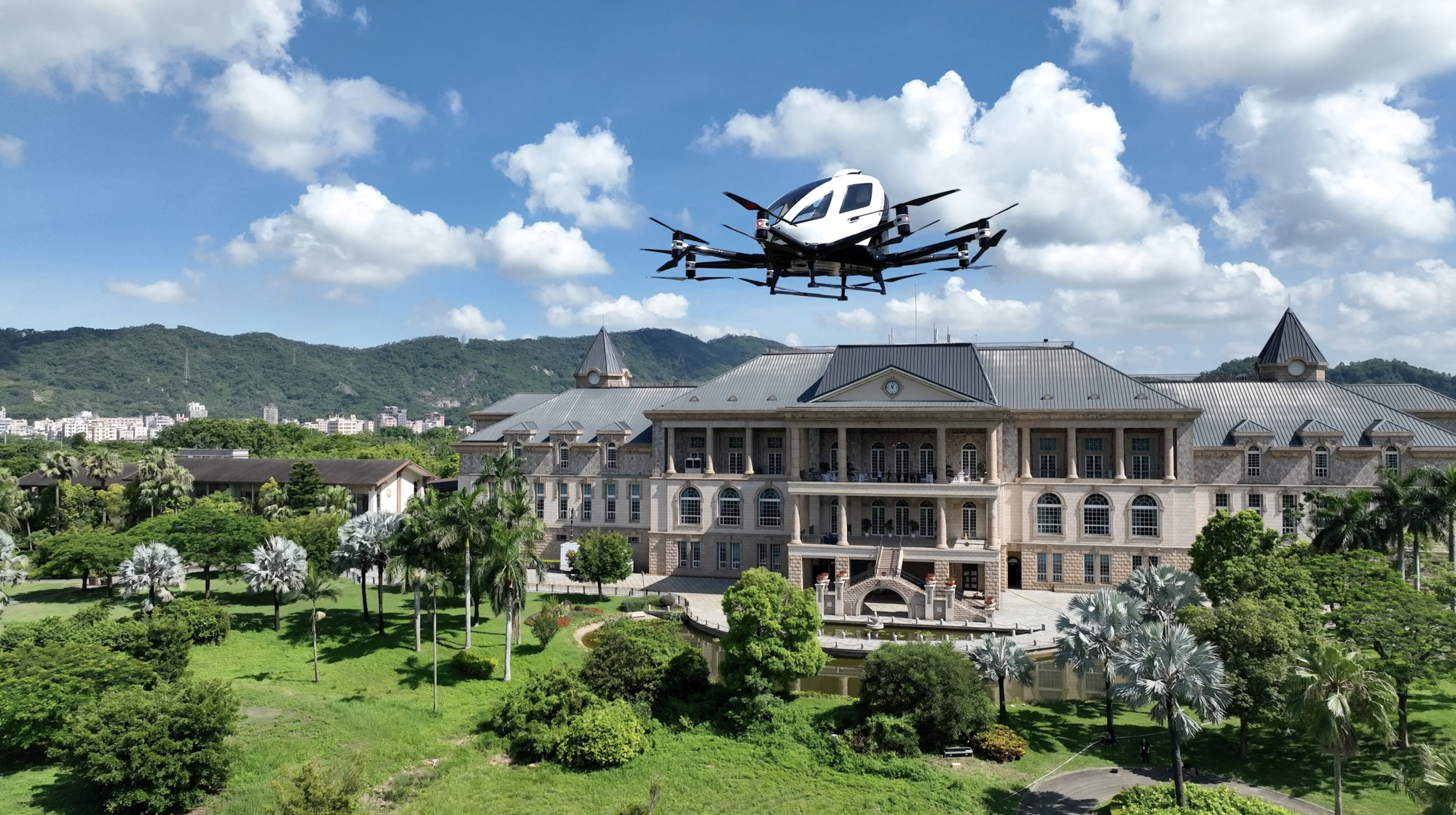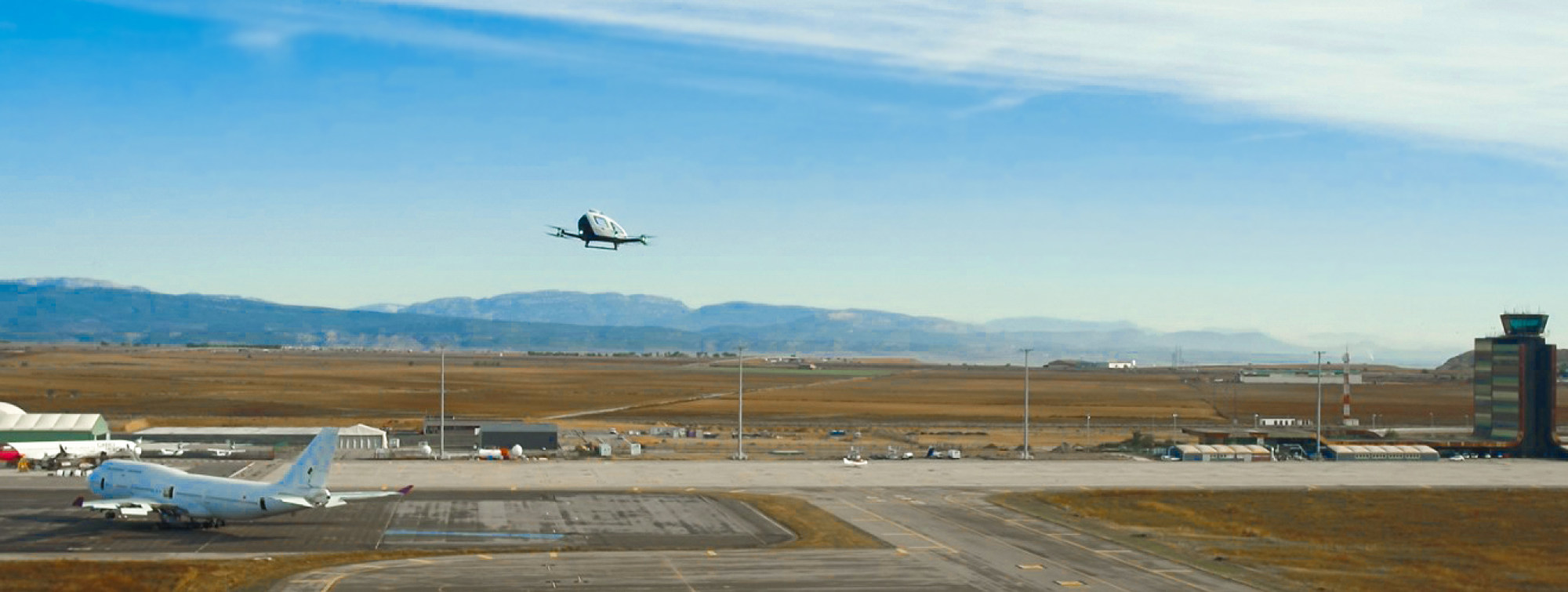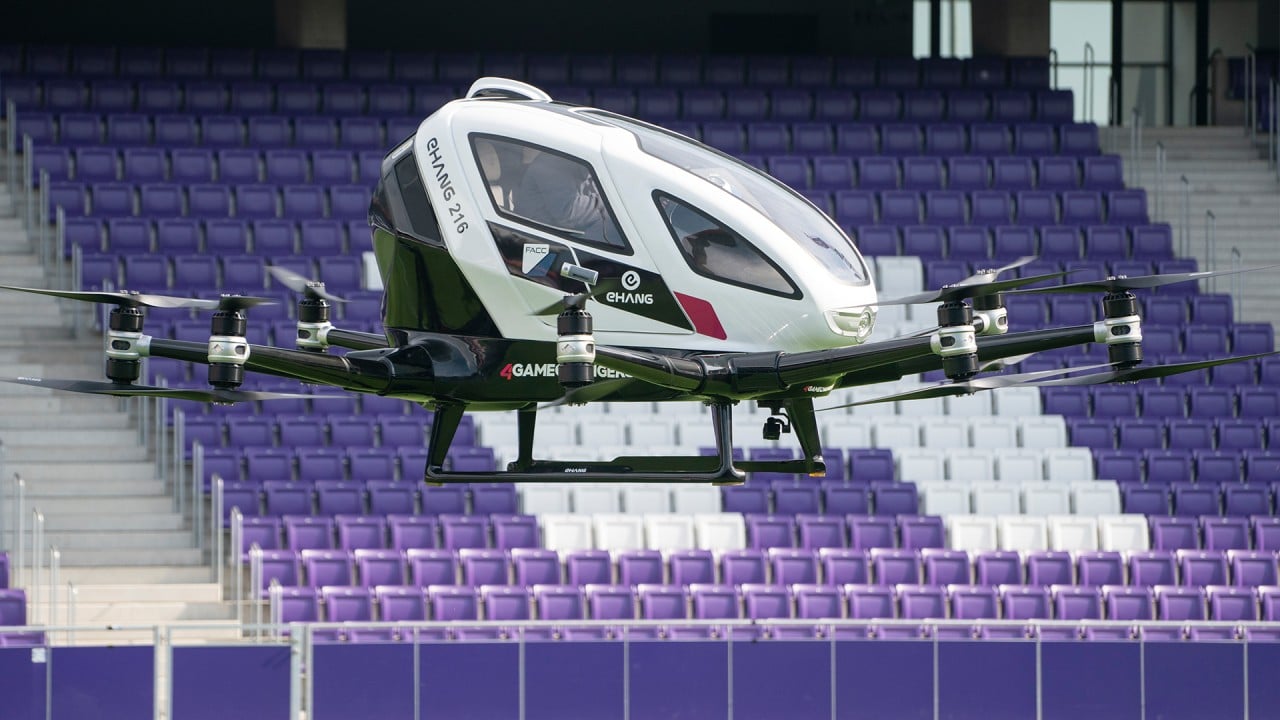EHang blamed the short seller’s “cursory and incomplete understanding” of its industry for a report that contained “untrue statements and misinterpretation of information” about the firm’s operations and financial condition, according to the Nasdaq-listed company’s statement on Tuesday, the same day Hindenburg Research published its findings.
The short seller’s report claimed that more than 92 per cent of EHang’s pre-order book, totalling over 1,300 units, are based on “dead” or “abandoned” deals, failed partnerships and newly formed customer entities with no discernible operations.
EHang’s largest deal is a 1,000-unit pre-order from one of its pre-initial public offering investors, a biotech company called United Therapeutics, which represents about 74 per cent of the Chinese passenger drone maker’s total pre-orders, according to the report. The deal was initially signed in 2016.

In response, EHang’s statement asserted that the company’s orders are “based on signed contracts and [are] planned for delivery after obtaining regulatory approvals”.
The orders also showed “strong interest and genuine demand” in the market for its electric vertical take-off and landing (eVTOL) vehicles, EHang said. Without elaborating, it indicated that “appropriate actions’ will be taken to protect the interests of the company and its shareholders.
The latest fraud accusations against EHang reflect lingering doubts over its long-term prospects in the capital-intensive aircraft manufacturing industry, as Hindenburg Research suggested that the Chinese firm operated on “a shoestring budget” relative to its peers.

EHang founder, chairman and chief executive Hu Huazhi said in a separate statement on Wednesday, that “the most effective way to defeat rumours is to deliver excellent operating and financial results”.
Hu said EHang saw strong demand for its EH216-S eVTOL vehicle in aerial tourism, urban transport and other fields after receiving the “world’s first” type certificate from the Civil Aviation Administration of China in October for that aircraft model.
The US short seller, however, also accused EHang of failing to disclose to investors about the flight restrictions that came with its recently granted certification. The restrictions invalidate the bulk of its potential commercial use cases, including restrictions against flying in densely populated areas, in shared airspace, and out of sight of a ground crew, according to the report.
In his statement, EHang’s Hu pointed out the company will gradually lift the operational limitations of its autonomous flying taxis and expand commercial operation scenarios.
EHang’s share price plunged more than 16 per cent in Tuesday’s trading session after the Hindenburg Research report was published. The stock closed up 7 per cent to US$13.99 on Wednesday.
The activist short seller also accused EHang’s major customer, Shanghai Kunxiang Intelligent Technology, of signing “sham sales contracts to benefit its investment” in the company.


